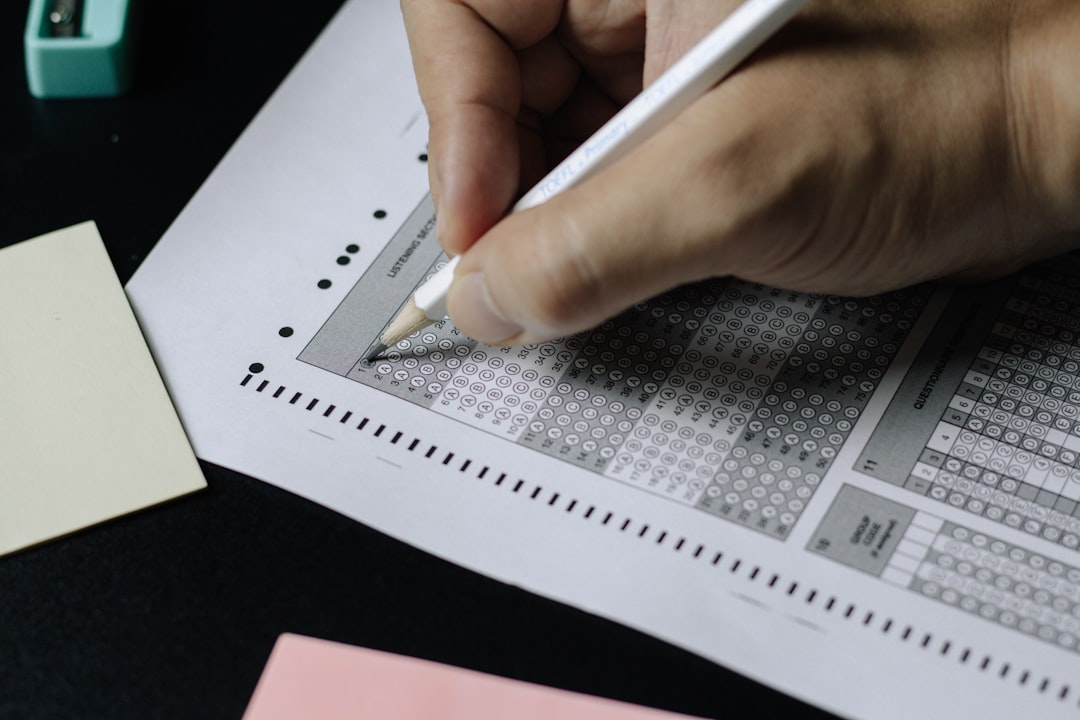Top 10 Study Tips for Effective Exam Preparation
Navigating through the maze of textbooks, notes, and endless assignments can be daunting as exams approach. Yet, with the right strategies and a bit of organization, acing your exams is entirely within your reach! Whether you’re a seasoned student or just beginning to familiarize yourself with the rhythm of academic assessments, this blog post will offer you valuable insights into effective study tips, cutting-edge studying techniques, and smart time management strategies to elevate your exam preparation game. Read on to discover how you can enhance your learning process and confidently stride into the examination room.
Importance of Exam Preparation

Exam preparation is a crucial aspect of academic success. By engaging in effective study strategies and organizing yourself before exams, you can dramatically improve your performance and reduce stress levels. Approaching exams well-prepared not only gives you a confidence boost but also enhances your understanding of the material, making it easier to recall information during the test.
Benefits of effective exam preparation
Effective exam preparation brings numerous benefits. First and foremost, it helps increase retention of information, which is vital for performing well on tests. Prepared students are also able to manage their time more effectively during the exam, ensuring that they can complete all sections thoroughly. Additionally, being well-prepared reduces anxiety, as students feel more confident in their ability to tackle exam questions. It also fosters a positive attitude towards learning and sets a foundation for good study habits.
Impact of good study habits on academic success
Good study habits are instrumental in achieving academic success. Habits such as planning ahead, setting realistic goals, and regularly reviewing class materials help students grasp complex concepts more easily and retain information for longer periods. These habits not only boost performance on exams but also enhance the overall learning experience. Students with strong study habits are generally more organized and efficient, qualities that are beneficial beyond academic environments and into their professional lives.
Study Tips for Effective Exam Preparation
To maximize your exam performance, employing effective study tips is key. Below are strategies that have proven successful for many students.
Organize your study space
Having an organized study space is essential for effective learning. Make sure your study area is quiet, comfortable, and free from distractions. A well-organized desk with all necessary supplies at hand minimizes wasted time and helps maintain focus. Consider ergonomic factors as well; a comfortable chair and proper lighting can significantly impact your ability to study for prolonged periods.
Create a study schedule
Creating a study schedule is a powerful tool in your exam preparation arsenal. Allocate specific times in your day dedicated solely to studying. This not only helps in managing your time efficiently but also conditions your brain to be in a ‘study mode’ during those times. Break down your subjects into manageable portions and set realistic goals for each study session. Remember to include breaks to refresh your mind and avoid burnout.
Utilize active learning techniques
Active learning techniques involve more engagement with the material and can lead to better understanding and memory retention. Techniques include:
– Summarizing topics: Rewrite the main points in your own words.
– Teaching someone else: Explaining concepts to others can clarify your own understanding.
– Creating mind maps: Visual aids can help in remembering information better.
– Practice tests: These can improve knowledge retention and highlight areas that need more focus.
By integrating these strategies into your study routine, you can enhance your exam preparation and ultimately, your academic performance. Remember, consistency is key in applying these tips to see significant improvements.
Techniques to Improve Retention
Repetition and practice tests
One of the most effective methods to enhance your memory retention is through consistent repetition and taking practice tests. Repetition helps solidify information by repeatedly exposing your brain to the material, thereby strengthening the neural connections associated with the knowledge. Practice tests, on the other hand, not only reinforce what you have learned but also highlight areas that need more attention. They simulate the pressure of an actual exam scenario, helping you to manage time and improve your response mechanisms. To incorporate these strategies effectively:
– Review your notes daily.
– Create flashcards to quiz yourself.
– Take regular practice exams under timed conditions.
Using mnemonic devices
Mnemonic devices are tricks used to increase recall. They transform hard-to-remember information into a simple, memorable format. Examples include acronyms, visualization, and chunking. For instance, using the acronym “HOMES” to remember the Great Lakes—Huron, Ontario, Michigan, Erie, and Superior. When studying complex processes or lists, break the information down into smaller, manageable units and associate them with vivid images or a rhyme. Mnemonics are particularly useful for memorizing abstract concepts or terminologies that do not directly tie to familiar experiences. Start creating mnemonics by:
– Identifying key information.
– Developing a creative, relatable way to encode this information.
– Rehearsing your mnemonic to aid retention.
Time Management Strategies for Exam Preparation
Prioritizing tasks
Effective exam preparation starts with the ability to prioritize your tasks. Begin by identifying which subjects or topics are most important or require more focus according to your syllabus and upcoming exam schedule. Use tools like planners or digital apps to list down all your study tasks and arrange them in order of priority. Consider the deadlines, exam dates, and difficulty level of subjects to allocate your time effectively. Strategies to efficiently prioritize involve:
– Creating a to-do list every day.
– Labeling tasks as high, medium, or low priority.
– Adjusting your priorities based on progress and upcoming deadlines.
Avoiding procrastination
Procrastination is a common barrier that can significantly hinder your exam preparation efforts. To combat this, develop a structured study schedule and stick to it. Break large tasks into smaller, more manageable pieces to reduce feeling overwhelmed. Set clear, achievable goals for each study session to maintain focus and motivation. Additionally, eliminate distractions in your study environment—this may mean setting limits on phone use, TV time, or social interactions during your designated study times. Techniques to avoid procrastination include:
– Setting specific study times each day.
– Working in a clean, organized space.
– Rewarding yourself after completing a study goal.
Setting realistic goals
Setting realistic goals for your study sessions can dramatically increase your productivity and decrease stress. When goals are achievable and clearly defined, you are more likely to feel motivated and committed to your study plan. Establish daily, weekly, and monthly objectives, adjusting them as needed based on your performance and feedback from practice tests. Ensure these goals are specific (e.g., number of chapters to cover, pages to read, hours to dedicate to a subject) and include rest periods to avoid burnout. Steps to set effective goals:
– Be clear about what you want to achieve.
– Make sure your goals are measurable.
– Review and adjust goals regularly to stay on track.
Healthy Habits to Enhance Study Sessions
Importance of sleep and nutrition
The foundation of effective studying isn’t just found in the pages of your textbooks or in the notes you take; it’s also deeply rooted in your sleep and nutrition habits. Good sleep is crucial because it affects how well your brain functions. Aiming for 7-9 hours of quality sleep each night helps consolidate memory and improve concentration, both of which are essential during exam preparation.
Nutrition also plays a critical role. Fueling your body with the right foods can increase your energy levels and sharpen your focus. Incorporate brain-boosting foods like fish rich in omega-3 fatty acids, nuts, seeds, yogurt, and blueberries into your diet. These foods can enhance cognitive functions and help you remember more of what you study. Remember, a well-balanced diet not only improves brain health but also maintains your overall well-being, making those long hours of studying more manageable.
Incorporating exercise into your routine
Regular physical activity can be incredibly beneficial for students preparing for exams. Exercise releases endorphins, which are hormones that help alleviate stress and boost mood. This can be particularly useful during the taxing exam season. Furthermore, exercise has been shown to help sharpen focus and improve cognitive functions, contributing to a more effective study session.
You don’t need to engage in intense workouts; even a short 20-minute walk or a quick yoga session can make a significant difference. Try to integrate short bursts of activity between study sessions. This not only helps refresh your mind but also keeps your body healthy and energized, ensuring you’re at peak performance when it comes time to tackle your exams.
Overcoming Exam Anxiety

Breathing exercises and relaxation techniques
Exam anxiety is a common issue that can hinder performance if not managed properly. One of the simplest, yet most effective ways to reduce this stress is through breathing exercises and relaxation techniques. Practicing deep breathing can help calm your mind and reduce tension. Techniques such as the 4-7-8 breathing method, where you breathe in for four seconds, hold for seven seconds, and exhale for eight seconds, can be particularly beneficial.
Additionally, meditation and progressive muscle relaxation are excellent for managing stress. These methods help you focus on the present moment and can significantly lower anxiety levels, creating a more favorable mental state for studying and taking exams.
Seeking support from peers and educators
Never underestimate the power of a supportive network when facing exam stress. Discussing topics with classmates can help reinforce your understanding and provide different perspectives that might help you remember information more effectively. Study groups are an excellent avenue for this, as they encourage active learning and problem-solving among peers.
Moreover, don’t hesitate to reach out to your teachers or professors if you’re struggling with certain topics. They can offer additional resources or clarifications that might make difficult concepts easier to understand. Educators can also provide moral support and studying strategies tailored to your specific needs, which can boost your confidence and help you feel more prepared as exam day approaches.
Conclusion
In wrapping up our guide to effective exam preparation, remember that the key to successful studying lies in understanding and utilizing the techniques that work best for you. From setting a realistic study schedule, breaking your material into manageable chunks, to maintaining a healthy balance between studying and breaks, all contribute to a more productive preparation. Whether you’re using flashcards, teaching others, or harnessing the power of digital tools, what matters most is consistency and the drive to achieve your academic goals. Put these strategies into practice not just before exams, but as a regular study habit, and watch your academic performance enhance significantly. Good luck!







